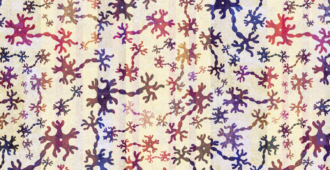During MND Awareness Month (1-30 June), we will be publishing a new post each day. Our ‘Project a Day’ series will celebrate the whole range of areas in which the MND Association funds research.
Thanks to the generous donations of our supporters, we currently fund over 80 research projects, across five themes:
- Causes: These projects aim to understand what causes the motor neurones to die. This is essential to allow the development of treatments.
- Models of MND: One way in which to understand the function of a gene and how this goes wrong in disease is to use a model. These projects aim to develop new and better models of MND to understand the causes of MND.
- Healthcare: These projects aim to increase the quality of life of people living with MND, as well as improving care. These projects have a direct impact on people living with MND here and now.
- Markers of disease progression: There is currently no diagnostic test for MND and no specific ‘biomarker’ to monitor the disease. These projects aim to find a marker of disease progression to speed up diagnosis, prognosis and disease monitoring of MND.
- Developing treatments: These projects aim to test the effectiveness of potential treatments, from laboratory stage to the clinical trial environment.
Collaboration is key to finding a cure
Project MinE may be the most visible MND research collaboration happening right now, but connections are constantly being made across the MND research community.
The discoveries made by one research group are shared worldwide through open-access publishing, allowing researchers from Sheffield to Sydney to incorporate new discoveries into their research.
To mark World ALS/MND Awareness Day on 21 June we will be posting an extra blog looking at the MND research happening across the rest of the world.
Nurturing young MND researchers
We currently fund over 20 PhD studentships, several of which we will cover during ‘Project a Day’.
It is important that the best and brightest young researchers stay working in MND research. PhD students we have funded have gone on to work in some of the most prestigious laboratories and research institutes both in the UK and abroad.

For example, Dr Anna-Claire Devlin (left), whose PhD studentship was supervised by Dr Gareth Miles at the University of St Andrews, is now continuing her career in MND research at Harvard University in the USA. We part-funded Anna-Claire’s PhD studentship into studying the relationship between motor neurones and neighbouring cells.
Come back tomorrow to read about Alex Patto’s PhD studentship project, which is helping us to learn more about the genetic causes of MND.
To find out about some of the other research projects we fund visit:





